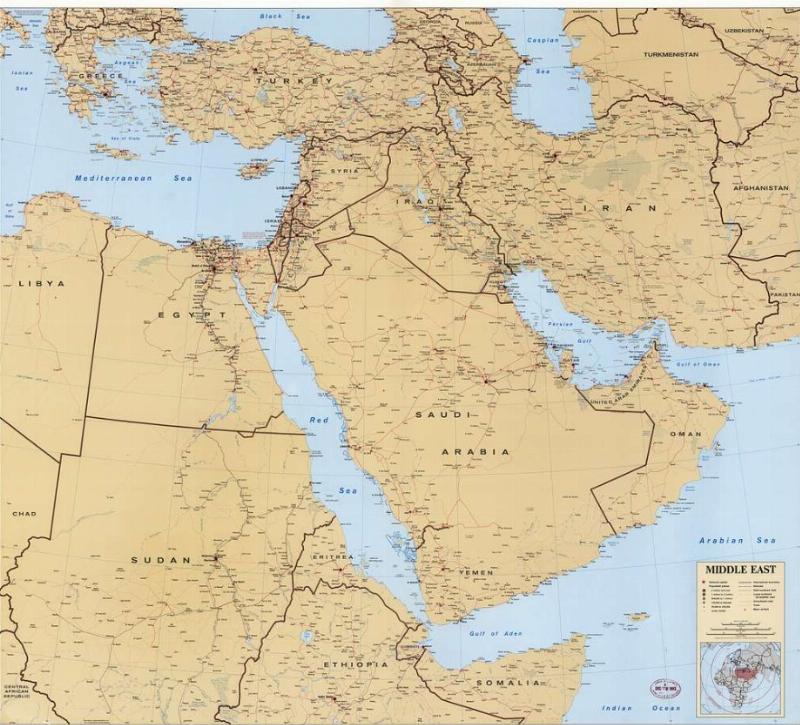Israel: From war to rescue

The Trump administration is pausing what is interpreted as a decision to enter a war against Iran.
That is not the right assessment.
It is weighing a decision to rescue Israel.
As in all conflict, context is central to an accurate perception of how countries behave. They may follow what appears to be a “great power” logic, where a country may maneuver strategically in what is thought to be a global geopolitical game involving a contest over land and resources.
But this model fails to recognize that such countries, like the U.S., Russia, China, and perhaps India, already possess enormous natural land mass wealth that stretches thousands of miles across multiple time zones, climates, and oceans and are filled with nearly unlimited resources including oil and gas, timber, coal, water, minerals, fertile soil, mountains, and defensible boundaries within which are populations in the hundreds of millions, and some well over one billion.
Then there’s Israel: a tiny country of 21,000 sq. km and about 9 million people in a mostly land-locked region over half of which (16,000 sq. km) is dry desert, while its sacred, spiritual heart -- the Judean Desert -- is all of 1,500 sq. km.
Iran by comparison has nearly 10 times the population — nearly 100 million people — in a land comprising over one million six hundred thousand sq. km., making Israel about 1.3% its size.
In economic terms, however, it’s a different story.
Iran’s GDP is about $405 billion in U.S. dollars. Israel's GDP at about $565 billion, and its GDP per capita is almost $60,000, ranking it the 13th highest in the world. All this from a country smaller than Massachusetts, about 4% the size of Texas; about 1% the size of Alaska, and one-fifth the size of Kentucky.
But for all of Israel’s success, standing alone on the slenderest of tiny land areas of mostly desert sand, Iran and its allies feel that Israel must for some reason still be destroyed.
Yet in some of these ancient Arab and Muslim lands, overflowing with nearly unlimited, rich natural resources, with markets for them that span the globe in billions of dollars a year to the world’s biggest countries like China, there stands precious Israel, fighting for its life, and standing almost alone but for the United States.
And therein is a key political and social question: Why is it that the U.S. stands alongside Israel, while Russia and China are unwilling to do so? Is it because both Israel and the U.S. dominate Western culture, grounded in a classical liberal order that its antagonists are determined to eradicate, and that even parts of Europe have abandoned or are willing to surrender?
Some will argue that Israel picked an unnecessary fight with Iran: but since when does a country enrich nuclear material for supposedly peaceful nuclear energy, by setting up an isolated, deep, sprawling military underground engineering facility that rivals an enemy science fiction complex from a James Bond movie, and is impervious to nearly all attack, or most detection?
Iran apologists including in the U.S., make the questionable claim that Iran “is still 3 years away from a nuclear weapon.” But then what? By what logic of global geopolitical order is that even a coherent thought, and a manageable foreign policy path of nuclear détente?
In the meantime, Iran is covertly supplied with highly advanced weapons, materials and engineering from Russia and China, while nuclear Pakistan to its south and east, makes up a 904 kilometer-long border, across which can be instantly transported the world’s most advanced tactical nuclear weapons, aimed straight at Israel, and at U.S. resources.
Political partisan critics are quick to demonize the United States and Israel, because they fail to make a pragmatic, Realpolitik-like assessment of how the world is actually set up geopolitically, and economically.
President Trump and his team are not facing a decision to attack Iran. They are standing in front of a violent world that would wipe both Israel, and the United States, off the globe if given the chance.
In many ways, their determined enemies are already far down that road to resource hegemony, and a dictatorship of world economics.
That means either Israel and its modest territorial claim must be preserved by United States military defense and rescue, or, that a negotiated ordering of world interests is coordinated among those powers that contend for global control.
Economic self-interest and ordered markets can theoretically provide that coordination, but not if radical political authoritarianism is an ideological priority. This may mean that the U.S. must not only rescue Israel, but it must rescue the West. Even Europe has figured this out.
Matthew G. Andersson is a former CEO and an aerospace and defense advisor. He has been featured in the Financial Times, Wall Street Journal, New York Times, and the Washington Post, and testified before the U.S. Senate. He is a graduate of the University of Chicago and has worked in Russia in strategic joint ventures.
Image: Libary of Congress, via Picryl // public domain